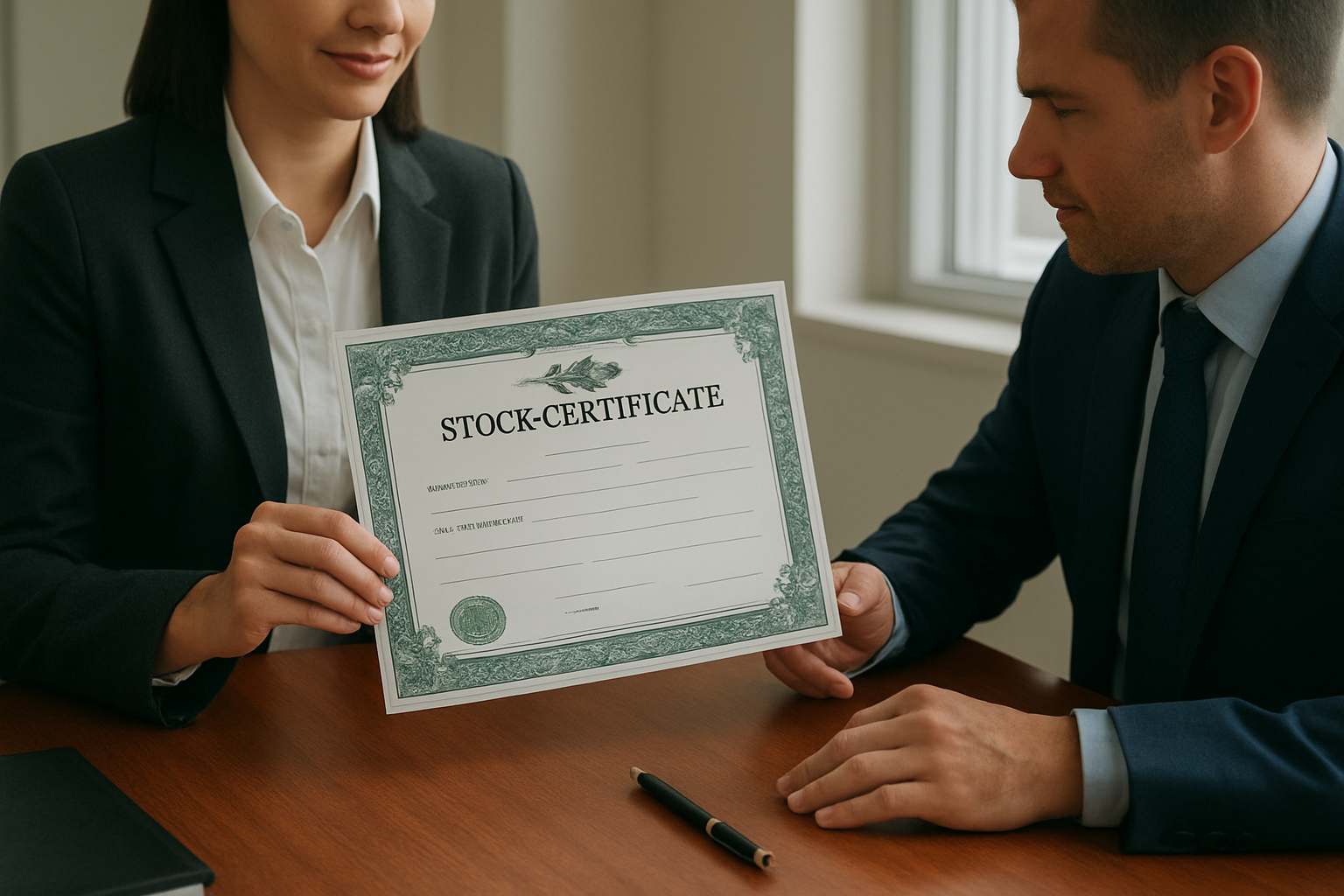For more than a century, stock certificates have served as proof of ownership in a company. The first stock certificate was reportedly issued in 1601. The Dutch East India Company introduced the idea.
A stock certificate is a legal document that proves ownership of shares. Companies printed them on paper for decades. The certificates display the shareholder’s name and the number of shares owned. They also show information like the class of stock and the date of issuance.
Digital record-keeping has replaced the ornate paper documents of the past. The process of issuing corporate stock certificates remains the same though. It’s still important for corporations, shareholders, and investors alike.
Whether you’re a business owner or an investor, stock certificates still play a crucial role. You must understand their significance.
How are Stock Certificates Issued?
Many companies today issue stock electronically. It’s done through a digital process known as “book-entry.” This means the ownership is recorded via digital means rather than a physical piece of paper. The concept of a stock certificate remains the same. It still provides critical proof of ownership and rights.
The process of issuing stock certificates follows a series of steps. These measures make sure that the company follows the law and has accurate records.
-
Authorization from the Board
The board of directors of a firm must give permission before the company can issue shares. The company’s articles of incorporation or bylaws say what it is. The bylaws might say how many shares they can issue and at what price.
-
Shareholder Records
Once the board approves, the company records the shareholder’s details. It can also be done by a transfer agent or agency. They’ll write down things like the quantity of shares bought, the price, and the date of the deal.
-
Preparation of the Certificate
A physical certificate includes the shareholder’s name, the number of shares, and type. It will also have the date of issuance, the signature of corporate officers, and a corporate seal. Physical stock certificates have a unique certificate number.
These facts are stored digitally in electronic certificates. The company or transfer agent keeps it in a safe system.
-
Delivering to the Shareholder
The stockholder gets a certificate that proves they own the shares. This usually means sending a signed copy in the mail for paper certificates. For electronic shares, the person who owns them gets a notice of confirmation. They also get access to their ownership record via the transfer agent’s system.
-
Transfer Agent Oversight
Companies use a transfer agent to handle the issuance and tracking of certificates. Transfer agents keep track of who owns what shares in great detail. When people sell their stocks, they handle the transfers. They also work to keep ownership records from being wrong or dishonest.
Why Stock Certificates Are Still Useful
Stock certificates are still very significant, even though we live in the digital age. This is why:
- A stock certificate is the finest way to prove that you own shares. This proof is highly significant when you go to court or have a conflict. You also need it to sell shares.
- Investor Confidence: Getting a stock certificate makes investors feel better. It’s proof that the shares bought were recorded. It also proves that shareholders hold legal rights to dividends. They also have the right to vote and other rights that come with being a shareholder.
- Keeping Records for Business: Stocks are used by businesses to keep track of who owns shares. The records assist the firm follow the rules. It also helps with stock splits and dividend payments.
- History: A lot of people still like to collect real stock certificates. They save certificates from well-known companies like Coca-Cola. These certificates are often worth more than the stocks.
- Planning Your Estate: Certificates are quite crucial when it comes to inheritance. They make it easy to show that you own something. They also make transferring shares to the rightful party easier.
Conclusion
The way of issuing corporate stock certificates has evolved. From ornate paper documents, they’re now secured electronic records. Their purpose remains the same, though. They show who owns something and protect the rights of shareholders.
Find the Best Transfer Agent to Work With
Legacy Stock Transfer keeps track of and updates information on shareholders. When it comes to transferring shares, we’re the best. We make sure that your share certificates are safe. We can help you check things out both online and on paper. We promise to keep your investments safe. You can reach us at 972-612-4120 or by email.

